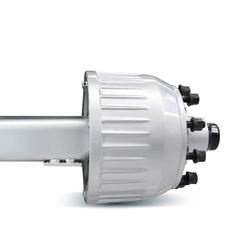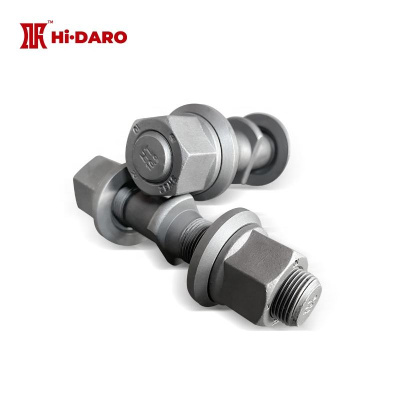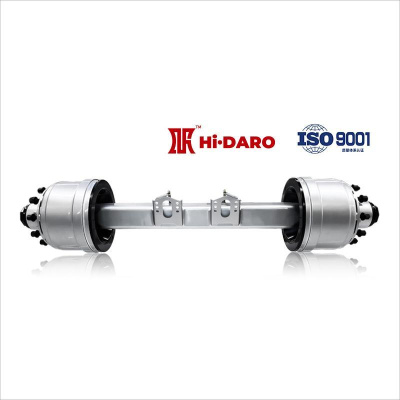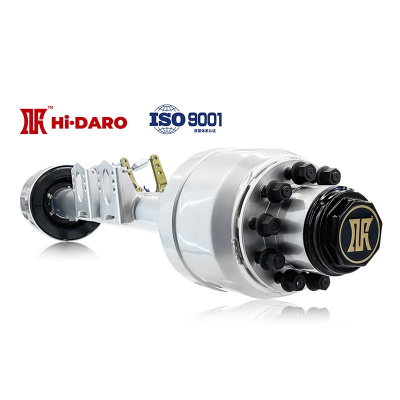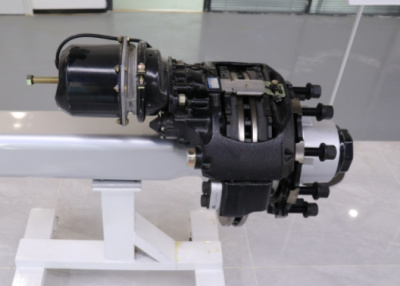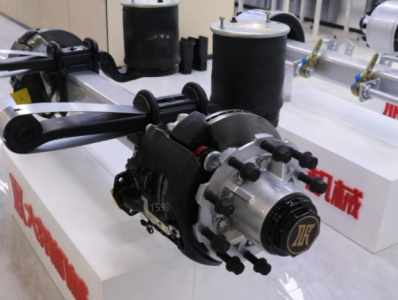Semi Trailer equipped with EBS is currently the most popular trend
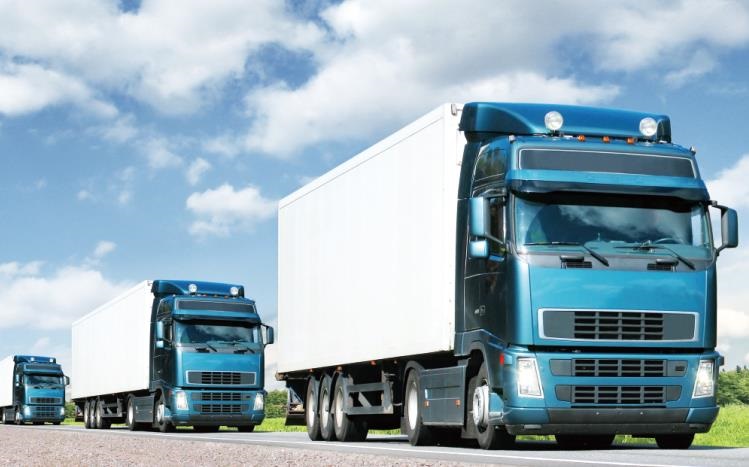
As an important means of transportation, the use and management of semi trailers have also been strictly regulated. In order to ensure the safety of road transportation, China has introduced a series of laws and regulations on the braking performance of trucks, including not only the main vehicle but also semi trailers.
The safety issue of trailers has sparked extensive discussions among cardholders in our Truck Home discussion group on the cancellation of speed limit 89 EBS new regulations. Especially many cardholders have found in actual use that most semi trailers are non compliant, not to mention EBS, they don't even have a decent ABS!
Recently, relevant departments have drafted a draft for soliciting opinions on the modification of the "Technical Conditions for Safety of Operating Trucks". Through the interpretation of the draft, we have found that tractor and trailer may be required to come standard with EBS braking system by force! What is EBS? What are the benefits of equipping trailers with EBS? Today's article, the editor said to everyone!
What is EBS? What is the difference between it and ABS?
EBS stands for Electronic Braking System. It mainly consists of sensors, electronic control units, actuators, and other auxiliary components. Mainly using electronic control technology, precise control of the vehicle braking system is achieved through the collaborative work of sensors, electronic control units, and actuators.
We all know that ABS systems mainly prevent wheel lock up by quickly and continuously adjusting brake pressure, while EBS introduces electronic control systems to replace traditional mechanical systems.
Simply put, the EBS system collects brake signals and wheel speed information through sensors, and then processes and calculates them through an electronic control unit (ECU) to control actuators (such as proportional relay valves, ABS solenoid valves, etc.) to adjust brake pressure.
So the EBS system not only includes all the functions of ABS, but also achieves higher accuracy and faster response speed through electronic control.
Moreover, the EBS system can also have more advanced functions. For example, the EBS system can achieve more accurate braking force distribution, automatically adjusting the braking force ratio of the front and rear axles based on factors such as vehicle load and road conditions.
At the same time, the EBS system also has functions such as forward tilt prevention control, deceleration control, brake force distribution, main trailer consistency control, integrated auxiliary braking, parking at the station, friction plate wear control, and brake temperature monitoring.
In addition, the EBS system also has faster braking response time and shorter braking distance. Under the same conditions, EBS can reduce braking distance by 15%, making braking safer and more efficient.
Of course, any technology has its limitations, and EBS is no exception. Overall, the current EBS system has disadvantages such as high cost, environmental sensitivity, dependency and compatibility, technological maturity and reliability.
Why should trailers be equipped with EBS? What does it do for our driving safety?
When it comes to the issue of EBS, many cardholders have also raised questions: Is it enough to equip the tractor head with EBS? Why do non powered trailers also need to be equipped with EBS?
In fact, the main reason why trailers need to be equipped with EBS is to communicate with towing vehicles equipped with EBS, in order to achieve the purpose of coordinated braking between the towing vehicle and trailer, and to prevent phenomena such as head pushing caused by lack of communication between the towing vehicle and trailer. Moreover, equipping trailers with EBS can further improve reliability and safety.
Simply put, EBS can make different controls for each wheel. For example, when the vehicle brakes on a wet road, if the driver steps on the brake, the system will release the brake pressure according to the driver's braking force to achieve the best braking effect. If a wheel locks or slips due to insufficient friction, the EBS system will reduce the brake air pressure for a specific wheel to ensure balanced braking force between each wheel.
The braking of a trailer is generally earlier than that of the main vehicle, as the connection between the trailer and the main vehicle determines the particularity of braking. Once the trailer or main vehicle brakes out of sync, it is highly prone to dangerous situations such as skidding or head pushing.
The emergence of EBS can precisely solve this problem. If both the main vehicle and trailer are equipped with EBS system, when the system detects that the braking of the main vehicle and trailer is not unified, EBS will adjust the brake distribution to achieve the effect of unified braking.
For example, when the driver steps on the brake and applies the brakes, if the main vehicle slips sideways, a dangerous situation of pushing the head may occur. At this point, the EBS system detects this situation and instantly releases the main vehicle brake, while distributing the braking force between the left and right wheels of the trailer to balance the vehicle's movement and fully ensure the safety of both the driver and the vehicle.
EBS has rich expandability, and many advanced functions cannot be separated from it
The EBS system has not only improved its security performance, but also expanded its functionality comprehensively. So EBS is not just a single function system, but an open vehicle control platform.
EBS can integrate and collaborate with other electronic systems to derive various auxiliary functions, including vehicle stability control (ESC or ESP), anti roll system (RSC), anti-skid drive (ASR), hill assist (HSA), and more.
Taking WABCO's mBPS (Modular Braking System Platform) as an example, this platform not only allows OEM vehicles to switch between ABS and EBS platforms, but also allows for the addition of more functions in subsequent supplementary modules based on the platform.
That is to say, EBS can be said to be a major innovation in vehicle braking systems. In addition to its own performance and functions, more importantly, it provides a basic platform for various auxiliary systems that will emerge in the future.
That means if your car has EBS, not only ABS, but also other systems such as ESC/ESP, RSC, ASR, ACC may be equipped. In the future, the EBS platform may even add more autonomous driving functions, which are advantages that ABS systems do not have and are also the future development trend.
